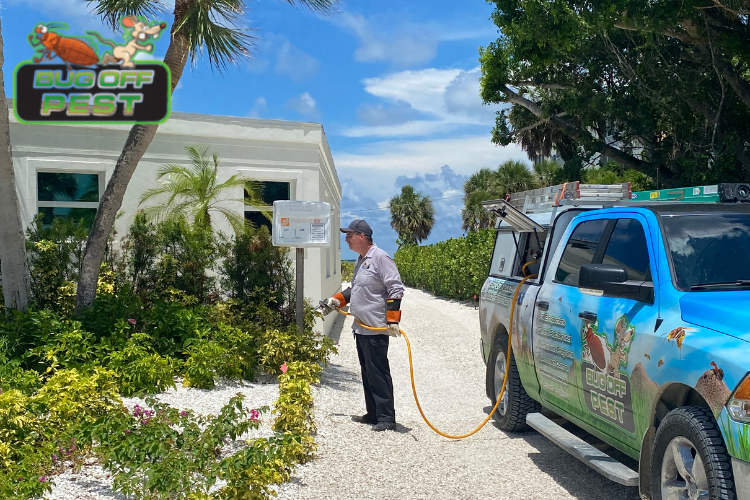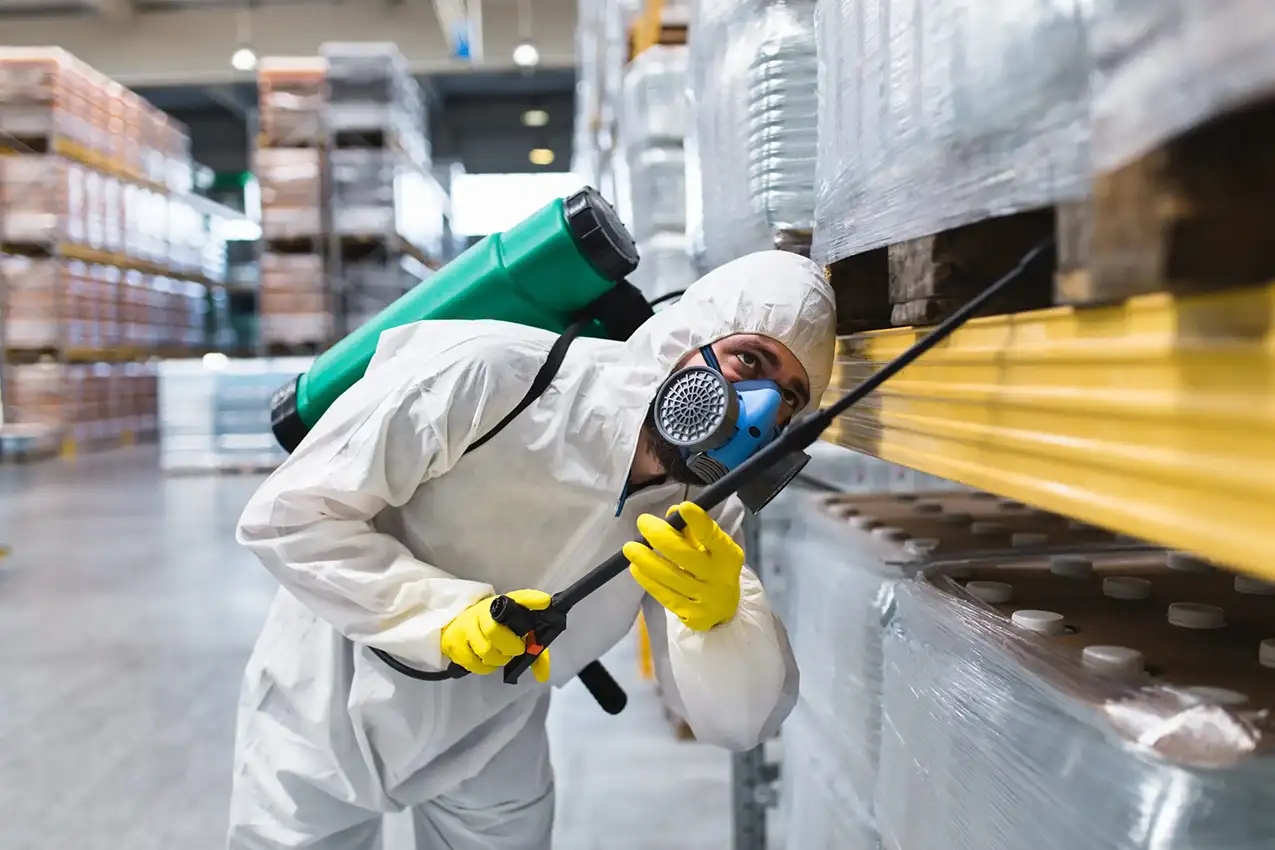Trusted Rodent Control Port Charlotte to Avoid Damage to Your Property
Discover the Value of Bug Control in Maintaining a Healthy Atmosphere and Therapy Strategies

The Role of Bugs in Environments
Insects, commonly seen solely as annoyances, play a diverse duty in communities that is essential for maintaining ecological balance. They contribute dramatically to different ecological processes, including pollination, nutrient cycling, and insect control. For instance, numerous insect species, such as and butterflies, are necessary pollinators for a broad array of plants, which in turn supports biodiversity and food manufacturing.
Furthermore, parasites act as victim for many predators, creating an important link in food internet. This connection ensures the survival of various species and helps regulate populations within environments (Termite treatment Port Charlotte). In addition, decomposer pests, such as certain beetles and fungis, are important in breaking down raw material, therefore enhancing dirt and assisting in nutrition recycling.
On the other hand, while pests can be beneficial, their overpopulation or invasion into non-native environments may disrupt these eco-friendly functions. This intricacy underscores the significance of recognizing pest characteristics, as efficient pest monitoring approaches must consider both their environmental functions and prospective impacts on human activities. Balancing pest existence while reducing harm is important for preserving the integrity of ecosystems and guaranteeing farming productivity.
Health Risks Associated With Insects
The presence of pests in various settings extends past their environmental functions, as they likewise position significant health threats to pets and human beings. Lots of pests, including rats, bugs, and parasites, are service providers of conditions that can have major health implications. As an example, rats are recognized to transmit hantavirus and leptospirosis, both of which can bring about serious respiratory and kidney issues, respectively.
Pests such as ticks and mosquitoes are infamous for spreading out vector-borne conditions like jungle fever, dengue fever, and Lyme illness. These illnesses can cause high morbidity and mortality prices, especially in prone populations. In addition, parasites like cockroaches and insects can exacerbate allergies and bronchial asthma, contributing to respiratory issues in people, particularly those with pre-existing problems.
Additionally, the existence of bugs can result in mental stress and pain, influencing general well-being. Contamination of food and surface areas by pest droppings and continues to be can result in foodborne diseases, highlighting the importance of keeping sanitary problems. For that reason, understanding the health threats connected with insects is essential in recognizing the requirement of reliable bug administration techniques to secure human and animal health and wellness.

Benefits of Reliable Insect Control
Reliable bug control is necessary for preserving a healthy and balanced and secure atmosphere, as it constantly alleviates the numerous dangers connected with pest infestations. One of the main advantages of efficient bug administration is the reduction of carcinogen. Parasites such as roaches, insects, and rats are vectors for diseases that can affect both people and pets. By managing these populaces, the likelihood of illness transmission is considerably decreased.
In addition, reliable bug control safeguards building and frameworks from damages. Several pests, like termites and carpenter ants, can trigger extensive architectural damage that might require expensive repair work. By proactively handling these companies, problems and house owners can dig this protect their financial investments.
An additional substantial advantage is the renovation of general lifestyle. A pest-free atmosphere adds to mental wellness and minimizes stress and anxiety associated with problems. Efficient pest control fosters a more secure setting for pets and youngsters, making sure that homes stay shelters cost-free from his response damaging chemicals and disease-causing microorganisms.
Typical Parasite Control Techniques

In the world of pest monitoring, various techniques are utilized to deal with infestations effectively. These methods can be generally categorized into 3 major approaches: cultural, mechanical, and chemical controls.
Social control involves modifying practices to minimize parasite recreation, survival, and facility. This may consist of crop rotation, correct hygiene, and environment manipulation, which collectively develop a setting less for pest proliferation.
Mechanical control utilizes physical techniques to eliminate pests (Termite treatment Port Charlotte). Techniques such as barriers, vacuum cleaners, and traps are commonly used to straight eliminate parasites from an area. This approach is specifically efficient for taking care of rodents and insects without making use of unsafe chemicals
Chemical control involves the application of chemicals to take care of bugs. These compounds can be classified right into herbicides, insecticides, and fungicides, each targeting particular types of bugs. It is vital to use these chemicals deliberately, adhering to security standards and guidelines to reduce prospective harm to non-target varieties and the environment.
Each insect control technique has its advantages and restrictions, and typically, an incorporated technique incorporating multiple approaches produces the ideal lead to preserving a pest-free setting.
Sustainable Insect Administration Practices
Lasting insect management practices include a variety of approaches made to decrease ecological influence while effectively controlling bug populaces. These techniques prioritize using eco pleasant methods over chemical pesticides, thus minimizing the risk of harm to non-target species, including advantageous pests, wild animals, and people.
Integrated Bug Monitoring (IPM) is a cornerstone of lasting practices, incorporating organic, cultural, mechanical, and chemical methods to manage bugs. As an example, organic control includes introducing all-natural predators or parasites to suppress insect populations. Social methods, such as crop rotation and polyculture, interrupt pest life cycles and enhance community resilience.
Mechanical approaches, such as catches or barriers, can efficiently avoid insect gain access to without chemical treatment. Furthermore, keeping healthy environments with proper dirt management, plant wellness, and biodiversity can naturally minimize insect problems.
Education and learning and awareness are vital elements, empowering individuals and communities to identify bug dangers early and carry out preventive steps. Termite treatment Port Charlotte. By cultivating an alternative method that stabilizes insect control with eco-friendly stability, sustainable bug administration practices not just secure frameworks and plants yet likewise contribute to a healthier setting for future generations
Conclusion

Understanding the wellness dangers linked with pests is essential in identifying the requirement of efficient bug administration methods to safeguard human and animal health and wellness.
Effective bug control is crucial for preserving a safe and healthy setting, as it regularly alleviates the various risks linked with insect invasions.Integrated Insect Administration (IPM) is a cornerstone of sustainable methods, integrating biological, cultural, mechanical, and chemical tactics to take care of insects. By comprehending the role of parasites, recognizing involved health dangers, and using varied treatment methods, a sustainable approach to pest monitoring can be achieved. Integrated Insect Administration (IPM) emphasizes a holistic technique that reduces harm to valuable microorganisms while properly regulating pest populaces.